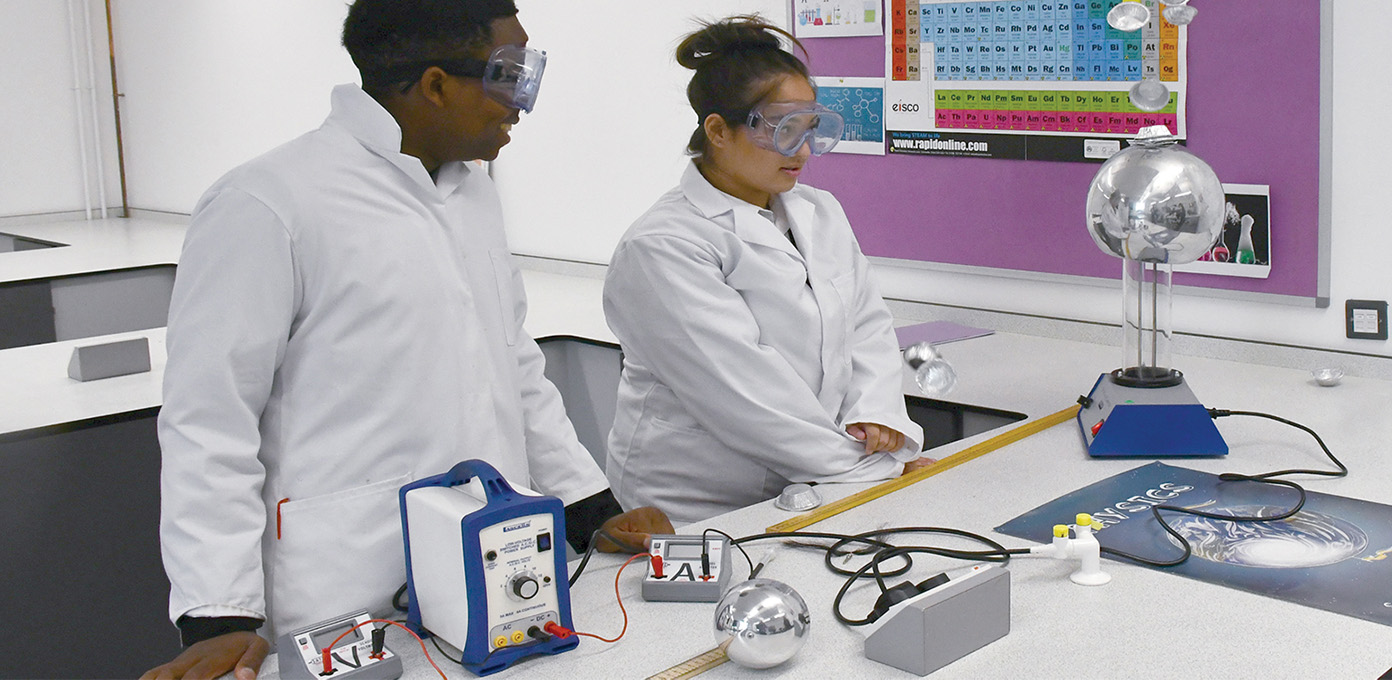Physics A level
Why Physics?
Physics is the study of the world around us: from what is in atoms to the reasons causing the universe’s expansion, and everything in between.
Physics will help to develop your problem-solving ability, even if sometimes we can never truly know if we are correct. It shows us different ways to look at a situation and encourages us to come up with creative ideas and solutions.
Physics has strong links in both practical and theoretical study. We get to test theories and proves that what we know is true in the labs, as well has making predictions purely based on data for future students of Physics to prove when technology catches up.
Course Outline
We will be using the AQA exam board – click here
This will build on your knowledge from GCSE and covers:
1. Measurements and their errors
2. Particles and radiation
3. Waves
4. Mechanics and materials
5. Electricity
6. Further mechanics and thermal physics
7. Fields and their consequences
8. Nuclear physics
And an optional module: Astrophysics, Medical Physics, Turning Points.
There are 12 required practicals which must be completed while covering certain skills, this will be accessed using a lab diary. This will be a Pass or Fail at the end of the course, but will not affect the overall grade for Physics.
Entry Requirements
- GCSE Triple Science Physics Grade 6 or above
or
- Combined Science Grade 7,6 or above
and
- GCSE Mathematics 6 or above
- Average GCSE Points Score of at least 4.5
Complementary Subjects
It is highly recommended, but not essential, to study A level Maths alongside A level Physics. Those who do not study A Level Maths will be required to do additional work to gain the skills that are beyond GCSE Maths.
Physics can work in combination with any other subjects too, but can particularly support/ be supported by studying Chemistry, Biology or Computer Science A levels.
Required revision guides and textbooks to purchase
Books optional as we currently have digital versions.
Year 1: – click here
Year 2: – click here
Where could A Level Physics take me?
Physics develops problem solving skills and is highly sought after from employers, universities, and apprenticeships.
The skills and knowledge that you will gain through studying A level Physics will be invaluable for any further study or career path. However, A level Physics is an essential qualification for students wishing to study Physical Science or Engineering-based Higher Education courses.
Furthermore it is desirable for anyone wishing to pursue further study/ careers in Architecture, Computing or Finance, or indeed in any career where mathematical or computer based models are used.
Who can I contact for further information?
Mrs Kaur, Head of Science, p.kaur@kwschool.co.uk


